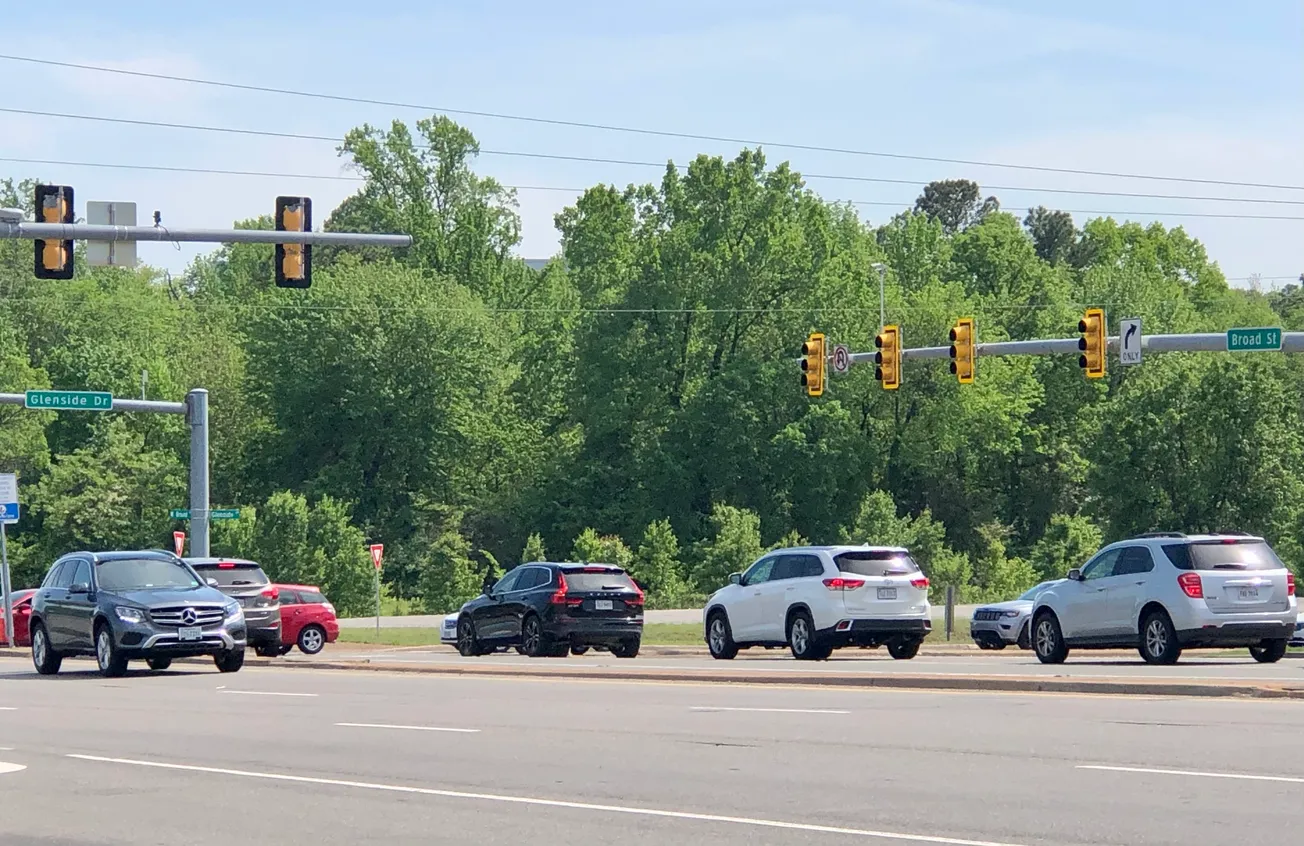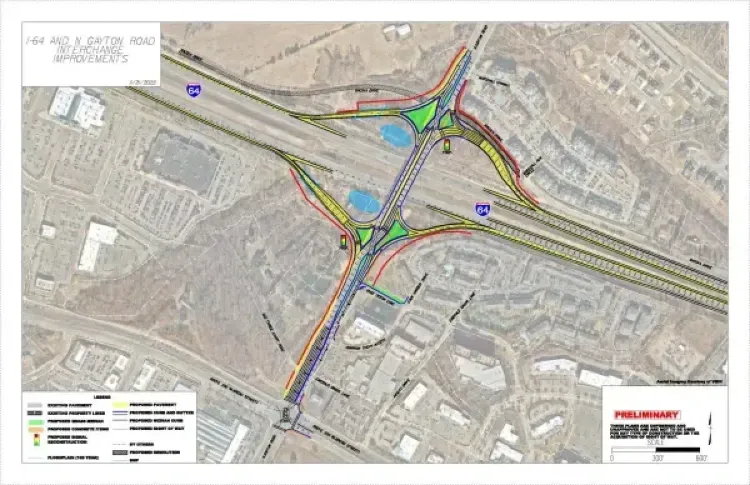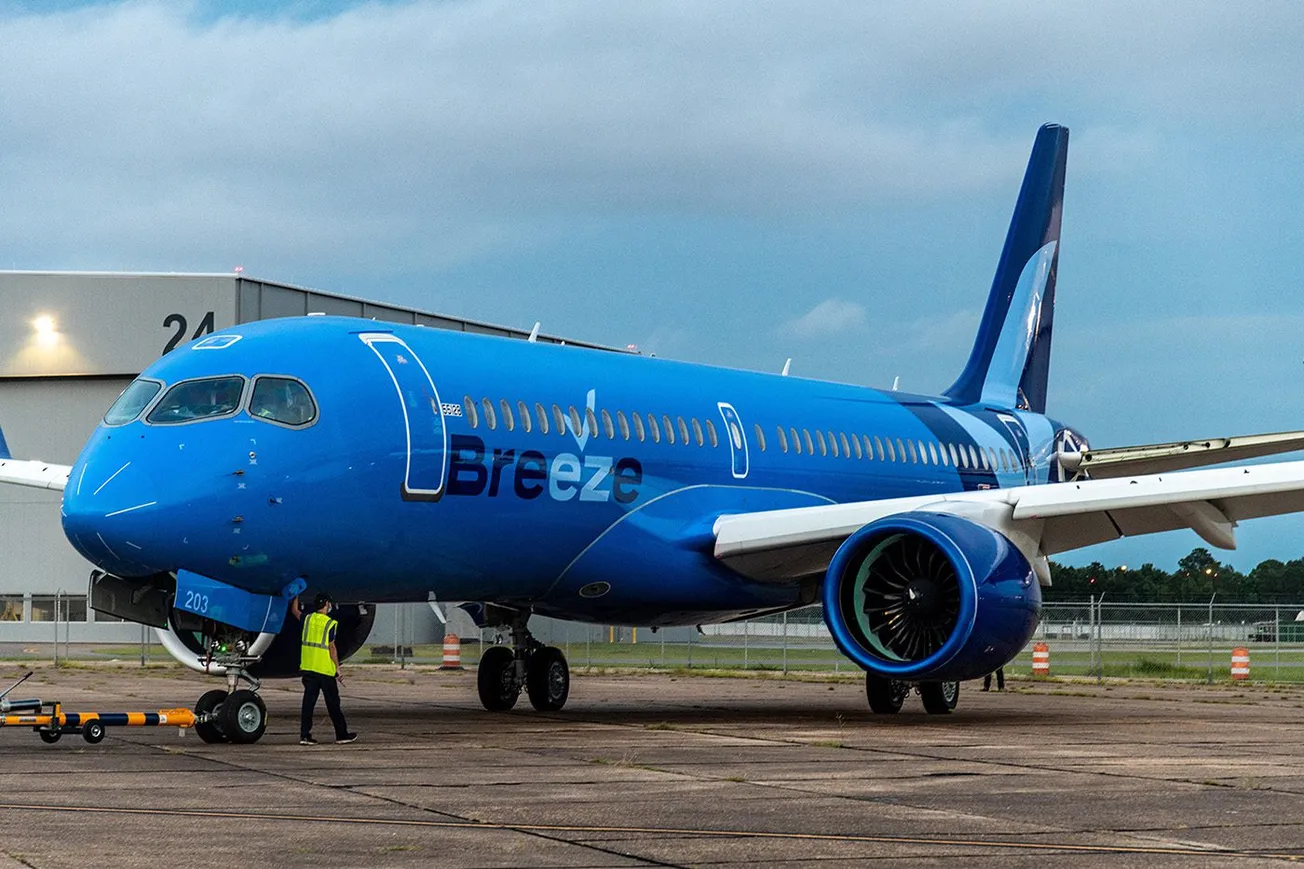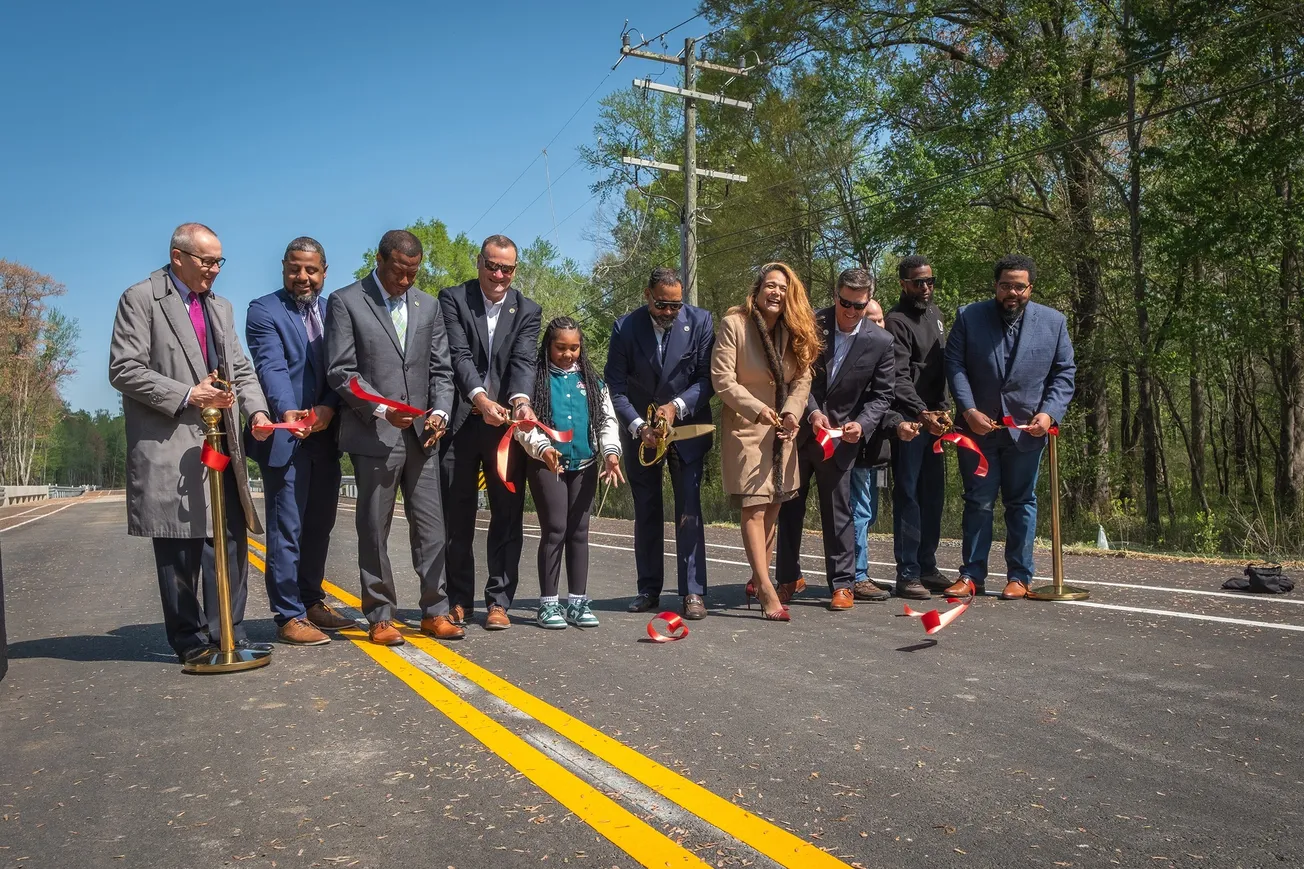3 Henrico transportation projects recommended for SMART SCALE funding; Short Pump interchange plans not among them

Table of Contents
Virginia transportation officials are recommending funding for three transportation projects in Henrico County as part of the state’s biennial SMART SCALE program but have declined to recommend funds for a costly series of interstate improvements in Short Pump for which the county also had sought money.
The recommended funding for Henrico projects (which still must be formally approved by the Commonwealth Transportation Board in June) includes:
• $26.97 million to completely fund an interchange improvement at Mechanicsville Turnpike and I-64 at the Henrico-Richmond line.
• $25.1 million toward a $27.6-million project to construct a shared-use path along a two-mile stretch of Mechanicsville Turnpike between Laburnum Avenue and the Richmond line;
• $10.19 million toward a $12.19-million project to enhance the intersection of West Broad Street and Glenside Drive, including the construction of sidewalks to make the area safer for pedestrians;
The first two projects were proposed by Henrico County officials, while the third was submitted by the Richmond Regional Transportation Planning Organization.
The West Broad/Glenside project will help Henrico nearly complete its effort to construct and upgrade sidewalks along the full span of West Broad Street in the county, Hughes said; the only remaining segment will be the point at which the road runs beneath I-64 in Short Pump.
”We’re trying to tackle it piece by piece,” he said, “that’s how we’ve gotten most of the sidewalks funded.”
The shared-use path along Mechanicsville Turnpike will allow the county to continue its effort to make major thoroughfares in Henrico more friendly for pedestrians and other non-motorized users. (Other projects are underway or planned along the Brook Road, Patterson Avenue, Staples Mill Road, Williamsburg Road and Nine Mile Road corridors.)
The I-64/Mechanicsville Turnpike interchange project is likely to reapportion some of the existing travel lanes to better utilize space, Hughes said, and also may create additional turn lanes. It also will provide better access for pedestrians through the area, he said.
“A lot of what we’re trying to do [there] in addition to making sure cars flow well is making sure there are safe areas for pedestrians,” Hughes said.
Projects approved for SMART SCALE funding typically are added to the fifth and sixth years of the CTB’s rolling six-year capital improvement program, meaning it could be more than four years before money is allocated for any of the three Henrico projects earmarked for potential funding. But approved projects sometimes are put on an expedited timeframe, Hughes said.

Record-high score not enough for Short Pump project
The SMART SCALE program is designed to prioritize funds for projects that score well upon 14 total factors within six categories: safety, conditions, accessibility, land use, economic development, and the environment (words and phrases whose first letters combine to spell “SCALE”). The “SMART” acronym stands for system for the management and allocation of resources for transportation.
In total, the Richmond region saw 14 projects recommended for a total of about $328 million – a figure that Hughes and other officials in the region were happy with.
Another nine projects in Henrico (six submitted by the county and three submitted by the RRTPO) were not recommended for funding by the group of officials from the Virginia Department of Transportation and Virginia Department of Rail and Public Transportation who were charged with reviewing and ranking all 270 project applications statewide.
Among those nine projects: a series of enhancements along the I-64 corridor in Short Pump, for which the RRTPO sought $247.2 million toward the $372.2-million effort. Henrico County is planning a new interchange at I-64 and North Gayton Road, as well as a restructuring of the I-64/West Broad Street interchange in Short Pump about three miles to the east to help reduce frequent congestion in the area.
Although it was rejected for funding, the proposal achieved the highest score ever given to a SMART SCALE proposal since the program’s implementation in 2016: 76.74 out of 100 (or more than twice as high as the next-highest score for a project proposed in this cycle, 34.67).
But scoring well in all six key areas isn’t necessarily enough to earn a project inclusion on the funding list; each project’s initial “benefit” score then is divided by its cost to provide a final score, which in the case of the Short Pump proposal dropped it to 96th (with a score of 3.10) among the 270 projects. Thirty-seven of the top 50 projects by total score were recommended for funding; only five of the 53 projects statewide to earn funding recommendations scored lower than the Short Pump proposal.
County officials were “pleasantly surprised” that the Short Pump proposal’s benefit score was so high, Henrico Public Works Director Terrell Hughes told the Citizen, but equally disappointed that despite that score, it wasn’t recommended for funding. The $247.2 million request associated with the project made it the most expensive request among the 270 proposed in this cycle.
The CTB does not offer partial funding for any Smart Scale projects; proposals either are approved and funded at the full requested amount, or they are denied. That philosophy was designed to ensure that allocated funds actually resulted in completed projects, since partially funded projects otherwise could go stagnant if localities were unable to fund the rest of the needed funds.
Failure to earn funding from the SMART SCALE program may not cause a delay in the ultimate construction of the I-64/North Gayton interchange and restructuring of the I-64/West Broad Street interchange, Hughes said.
The county already has committed $60 million to the project, and the Central Virginia Transportation Authority (a regional body that uses sales and gas tax revenues in nine Richmond-area localities to help fund transportation projects in each one) has committed $65 million.
Ongoing environmental studies are nearing their completion, and then design work will begin and could take several years. During that time, county officials will continue to seek other federal, regional and state funding options, Hughes said, and likely will resubmit the project for SMART SCALE consideration again in two years.
“We have a project that scored well, and we’re going to keep at it,” he said.
Eight other Henrico proposals also denied
The other eight projects in Henrico for which officials sought funding through SMART SCALE but were denied were:
• two separate proposals from the RRTPO totaling nearly $162 million to restructure the I-64/Gaskins Road interchange from a cloverleaf style to one more like the I-64/Airport Drive interchange (completed several years ago), which eliminated two of the four cloverleaf ramps in favor of traffic lights;
• a $19.84-million request from Henrico for improvements along Nine Mile Road between Gordons Lane and Dabbs House Road (a project anticipated to cost about $22.3 million overall);
• a $17.5-million request from Henrico for safety improvements along Glenside Drive and Horsepen Road (a project anticipated to cost about $21.5 million);
• a $14.8-million request from Henrico for improvements along Springfield Road (a project anticipated to cost about $17.3 million);
• a $13-million request from Henrico for improvements to East Parham Road between I-95 and Cleveland Street (a project anticipated to cost about $15.5 million);
• a $12.3-million request from Henrico for pedestrian improvements to Parham Road between Holly Hill and Three Chopt roads (a project anticipated to cost about $14.3 million);
• a $9-million request from Henrico for vehicular and pedestrian improvements to the West Broad Street/Parham Road intersection (a project anticipated to cost nearly $14 million).
Before the next SMART SCALE funding cycle in two years, Henrico officials will evaluate the scores each of their proposals earned this time, likely eliminate those with the lowest scores and replace them with new projects, Hughes said.
Other than the Short Pump interchange improvements, the Springfield Road proposal earned the highest total score (7.73) of the nine Henrico projects that were not recommended for funding. The Nine Mile Road and Glenside Dirve/Horsepen Road proposals had the lowest scores of the county’s proposals this cycle (both below 2).
The two I-64/Gaskins Road interchange proposals earned total scores of just 1.26 and 2.17.
The Commonwealth Transportation Board is hosting a series of meetings statewide to solicit input about its Six-Year Improvement Program (which will provide funding for Fiscal Years 2026 through 2031) and also offers other methods for people to provide feedback. Learn more here.




